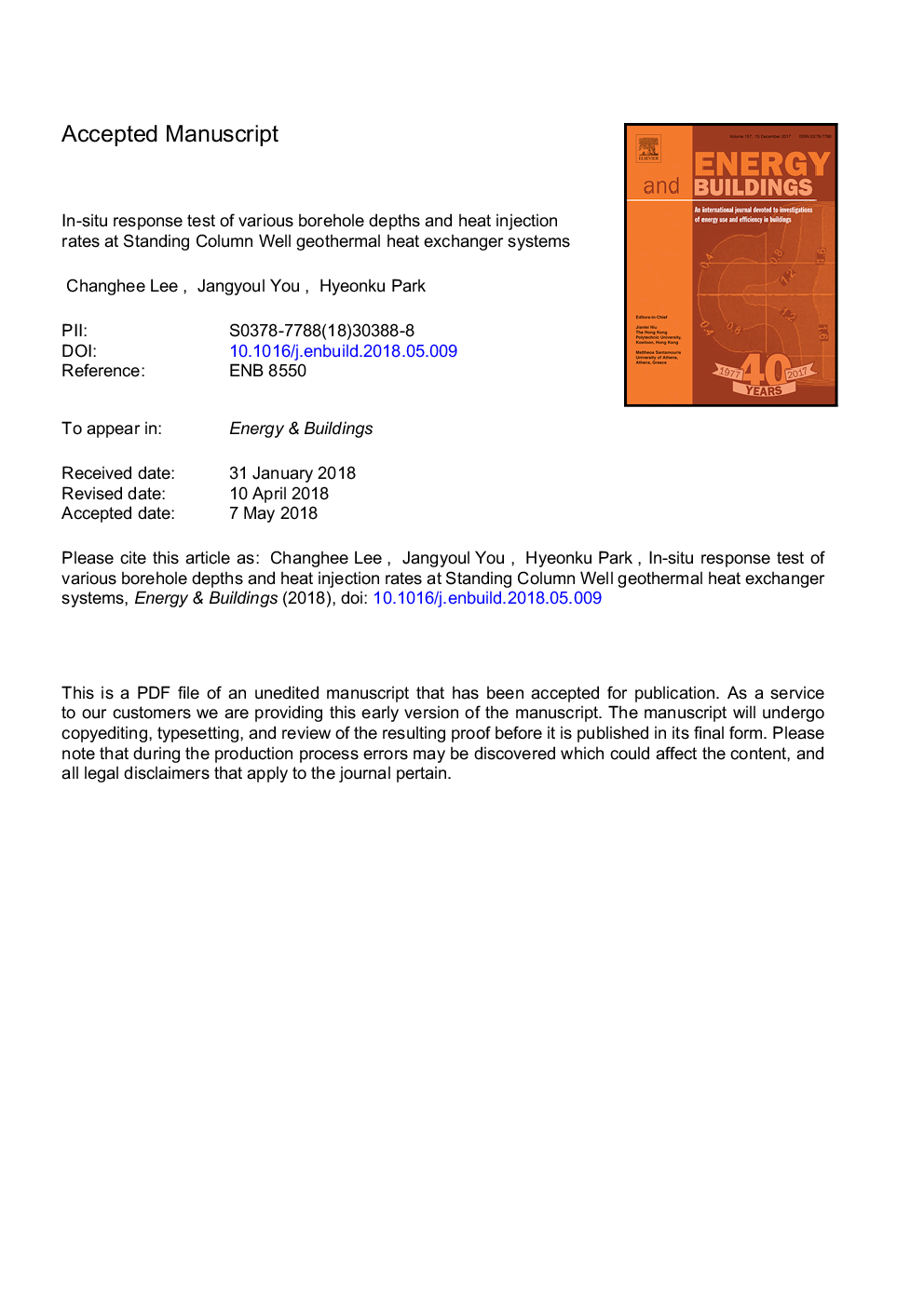| Article ID | Journal | Published Year | Pages | File Type |
|---|---|---|---|---|
| 6727480 | Energy and Buildings | 2018 | 25 Pages |
Abstract
In this study, we analyzed the thermal conductivity characteristics of a well-type underground heat exchanger with respect to the amount of injected heat per meter. Although a constant amount of heat was injected into the system, we compared and analyzed data for different borehole depths. We compared three different injection heat values (250, 300, and 350â¯W/m). We also analyzed the effective thermal conductivity with respect to different initial ignoring times (2â¯h, 3â¯h, and 5â¯h) based on different rock types and borehole depths. We did not observe a linear relationship between the rock types (alluvium, gneiss, and granite) and the borehole depth. The results suggest that different rock types have different thermal conductivity characteristics and the variation in the results is likely caused by groundwater, which affects the thermal conductivity measurements. For future geothermal heat exchanger designs, it is imperative to select a specific value for heat flow and an appropriate injection heat value depending on the rock type.
Related Topics
Physical Sciences and Engineering
Energy
Renewable Energy, Sustainability and the Environment
Authors
Changhee Lee, Jangyoul You, Hyeonku Park,
